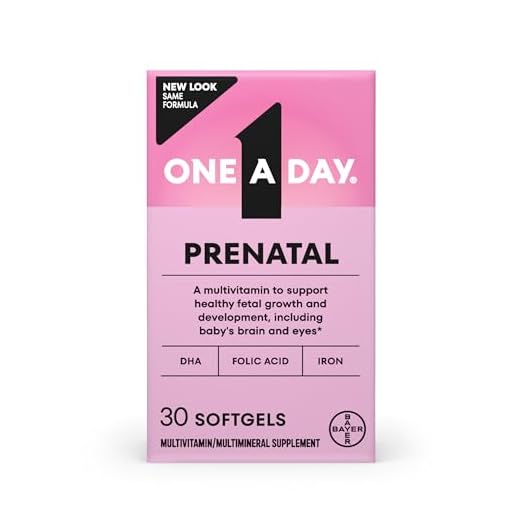







Yes, prenatal vitamins can help with mood swings during pregnancy. These vitamins provide essential nutrients like folic acid, iron, and omega-3 fatty acids, which play a significant role in stabilizing emotional well-being. Folic acid aids in neurotransmitter production, reducing anxiety and depression risks. Iron combats fatigue, while omega-3s support brain function and improve mood. A balanced diet alongside these vitamins can further enhance emotional stability. It's vital to consult your healthcare provider for personalized recommendations and to monitor any side effects. You'll discover valuable insights about managing these swings effectively in the information that follows.
Key Takeaways
- Prenatal vitamins provide essential nutrients like folic acid and omega-3s that support mood regulation and reduce fluctuations during pregnancy.
- Folic acid helps synthesize neurotransmitters, which can mitigate depression and anxiety associated with mood swings.
- Iron in prenatal vitamins alleviates fatigue, reducing irritability and emotional instability during pregnancy.
- Omega-3 fatty acids are crucial for brain health and have been shown to alleviate symptoms of depression.
- A balanced diet combined with prenatal vitamins supports overall emotional well-being, helping to manage mood swings effectively.
Understanding Mood Swings
During pregnancy, you might find yourself experiencing mood swings, often triggered by hormonal fluctuations, particularly with estrogen and progesterone. These hormonal changes can greatly impact your emotional well-being, especially during the first trimester and again in the third trimester when physical discomfort may arise. You may notice symptoms like increased irritability, tearfulness, anxiety about parenting, and trouble with sleep and concentration. Additionally, hormonal shifts can also influence neurotransmitter levels, which are essential for mood regulation. Nutritional imbalances can exacerbate these mood swings, making it vital to maintain a balanced diet. Key nutrients, such as folic acid, play an important role in supporting both your physical health and emotional stability, as adequate folic acid intake is associated with lower risks of mood disturbances. Prenatal vitamins can help fill in any nutritional gaps, providing essential nutrients that might be missing from your diet.
Incorporating regular physical activity can also support your emotional well-being. Exercise releases endorphins, helping to alleviate feelings of anxiety and irritability. A supportive environment, coupled with healthy coping strategies, can make a considerable difference in managing mood swings during your pregnancy. By prioritizing nutrition and physical activity, you're taking important steps towards a more balanced emotional state during this transformative time.
Causes of Mood Swings
With the rapid hormonal changes that occur in your body during pregnancy, it's no surprise that mood swings can become a common experience. The significant increases in estrogen and progesterone can alter neurotransmitter levels, which play an essential role in regulating your emotions. These hormonal changes, combined with physical discomfort, fatigue, and stress, can exacerbate emotional fluctuations you might feel throughout your pregnancy. Additionally, the intake of important nutrients through prenatal vitamins can be beneficial, as they provide crucial support for emotional well-being and overall health during this time. Nutritional imbalances also contribute to heightened mood swings; deficiencies in necessary vitamins and minerals can leave you feeling more emotionally unstable. It's imperative to maintain a balanced diet rich in these nutrients to support your emotional well-being. Moreover, prenatal vitamins support fetal development and can help guarantee that both you and your baby are receiving the necessary nutrients. Additionally, the emotional adjustments and anxiety surrounding impending parenthood can create extra stress, further influencing your mood variability.
The metabolic changes your body undergoes during pregnancy can affect your energy levels and overall emotional state, leading to that emotional rollercoaster many women experience. By addressing these factors, including considering prenatal vitamins to help fill any nutritional gaps, you can work towards stabilizing your mood swings and enhancing your emotional health during this transformative time.
Timing of Mood Swings
Maneuvering the timing of mood swings in pregnancy can feel overwhelming, especially since they often hit hard in the first trimester. During these initial weeks, expectant mothers experience significant hormonal changes as estrogen and progesterone levels fluctuate, leading to emotional highs and lows. It's common to feel a rollercoaster of feelings as you adapt to this new reality. Additionally, proper nutrition and supplementation, such as prenatal vitamins, may support mood stability during this period.
Fortunately, mood swings typically stabilize during the second trimester. You might find that your emotional state becomes more balanced as your body adjusts to the hormonal shifts. However, as you enter the third trimester, mood swings may re-emerge. Increased physical discomfort and anxiety about childbirth can reignite those emotional changes.
Understanding the timing of these mood swings is vital for your health and well-being. By recognizing that emotional fluctuations are often tied to specific trimesters, you can better prepare yourself and seek support when needed. Some expectant mothers find that prenatal vitamins can play a role in managing these emotional changes, though it's important to discuss this with your healthcare provider. Remember, you're not alone in this journey—many women experience similar challenges during pregnancy.
Nutritional Needs During Pregnancy
Meeting your nutritional needs during pregnancy is fundamental for both your health and your baby's development. Prenatal vitamins are specifically formulated to meet the increased nutritional demands during this significant time, providing you with essential nutrients that support both maternal and fetal health. Key nutrients such as folic acid, iron, and omega-3 fatty acids are critical for preventing deficiencies that might contribute to mood swings and emotional challenges. Additionally, nutritional support and maternal health provided by prenatal vitamins guarantees that your body has the necessary vitamins and minerals, such as vitamin D and calcium, which can also positively influence your mood.
A balanced diet, complemented by prenatal vitamins, can guarantee you receive adequate nutrients, which is important for reducing the risk of conditions like iron deficiency anemia. This condition can exacerbate fatigue and mood fluctuations, impacting your overall health and emotional well-being. Regular consultations with your healthcare provider can help tailor your prenatal vitamin regimen to your individual nutritional needs, ensuring ideal nutrient intake throughout your pregnancy.
Additionally, continuing to take prenatal vitamins while breastfeeding supports the additional nutritional demands on your body, positively influencing your emotional well-being. By prioritizing your nutritional needs, you're not only nurturing your baby but also fostering a healthier you.
Role of Prenatal Vitamins
As you navigate the complexities of pregnancy, understanding the role of prenatal vitamins becomes imperative for your emotional and physical well-being. Prenatal vitamins provide essential nutrients that can help stabilize your mood and reduce the risk of mood swings. For instance, folic acid is fundamental for synthesizing neurotransmitters, which regulate mood and may mitigate emotional fluctuations during this transformative period.
Iron, another significant component, supports increased blood volume and energy levels. This can alleviate fatigue-related irritability, helping you maintain a more even temperament. Additionally, adequate intake of calcium and vitamin D, commonly found in prenatal vitamins, is linked to improved overall emotional well-being. These nutrients not only support your physical health but also contribute to your emotional resilience.
Regular consumption of prenatal vitamins, recommended throughout pregnancy and breastfeeding, can provide nutritional support that bolsters your emotional balance. By ensuring you're getting these essential nutrients, you can better equip yourself to handle the stressors that come with pregnancy. So, consider making prenatal vitamins a part of your daily routine to support both your health and your emotional stability during this important time.
Key Nutrients for Mood Regulation
Steering through the emotional landscape of pregnancy can be challenging, but understanding the key nutrients that support mood regulation can make a significant difference. Folic acid, an essential nutrient found in prenatal vitamins, plays a significant role in brain health and has been linked to improved mood regulation. It helps reduce the risk of depression and anxiety, which can often lead to mood swings during this time.
Omega-3 fatty acids, also present in many prenatal formulations, are crucial for brain function and emotional health. Studies suggest they can alleviate symptoms of depression, contributing to a more stable emotional state.
Iron is another important nutrient; it helps maintain energy levels and prevents fatigue, which can exacerbate mood swings. Meanwhile, Vitamin D deficiency has been associated with increased depressive symptoms, making its presence in prenatal vitamins essential for overall mental health.
Lastly, adequate intake of antioxidants, like vitamins C and E, helps combat oxidative stress related to mood disturbances. By ensuring you get these key nutrients from prenatal vitamins, you can support your emotional health and navigate this transformative journey with greater ease.
Managing Mood Swings Effectively
Understanding the role of key nutrients in mood regulation sets the foundation for effectively managing mood swings during pregnancy. Prenatal vitamins, especially those containing folic acid and omega-3 fatty acids, support brain health and neurotransmitter function, which can stabilize your mood swings. Pairing these vitamins with a balanced diet rich in essential nutrients will enhance your emotional well-being and help mitigate fluctuations.
Incorporating regular physical activity into your routine also plays an important role. Exercise not only boosts your mood but also reduces the severity of emotional swings. Additionally, don't underestimate the importance of adequate sleep. A healthy nutrient intake from prenatal vitamins supports better sleep quality, essential for maintaining emotional stability.
Consulting with a healthcare professional can provide personalized strategies tailored to your needs. They can help you navigate the hormonal changes during pregnancy and recommend specific prenatal vitamin regimens to support your overall well-being. Remember, managing mood swings is a multifaceted approach that includes nutrition, exercise, and professional guidance, all working together to enhance your cognitive function and emotional health during this transformative time.
Choosing the Right Prenatal Vitamin
Choosing the right prenatal vitamin is important for supporting your health and your baby's development during pregnancy. When selecting a prenatal vitamin, look for necessary nutrients like folic acid, iron, calcium, and omega-3 fatty acids. These nutrients play a significant role in fetal development and maternal health.
Examine the form of the prenatal vitamin, whether capsules, tablets, or gummies, to find one that's easy to swallow and fits your lifestyle. It's crucial to opt for reputable brands that undergo third-party testing to guarantee quality. This helps you avoid harmful additives or allergens that may compromise your health.
While you can get some nutrients from your diet, it's wise to consult healthcare providers for personalized recommendations based on your individual dietary needs. They can help assess the adequacy of your nutrient intake and suggest appropriate supplements if necessary.
Be sure to monitor side effects like nausea or constipation, which can occur with certain prenatal vitamins. Taking them with food or at bedtime may improve tolerance and absorption, helping you benefit from these necessary nutrients throughout your pregnancy.
Consulting Healthcare Providers
While steering through the complexities of pregnancy, consulting healthcare providers is vital for receiving personalized guidance on prenatal vitamins, especially when dealing with mood swings. These professionals can assess your nutrient intake from dietary habits and recommend specific prenatal vitamins to guarantee you're meeting your unique nutritional needs.
Key components like folic acid and omega-3 fatty acids are important, as they may help stabilize mood during this emotional time. Regular consultations with healthcare professionals allow for monitoring any potential side effects of prenatal vitamins, such as nausea or constipation, and enable necessary adjustments to improve tolerance and effectiveness.
Additionally, healthcare providers can offer valuable support and resources for managing mood swings beyond vitamins. They may suggest counseling options or lifestyle modifications that complement your prenatal vitamin intake. Maintaining open communication about your emotional well-being during pregnancy guarantees you receive thorough care that addresses both nutritional and psychological health.
Conclusion
In summary, maneuvering mood swings during pregnancy can be challenging, but prenatal vitamins might offer some relief. Did you know that nearly 70% of pregnant women experience mood swings? By ensuring you get key nutrients like folate, omega-3 fatty acids, and B vitamins through prenatal vitamins, you can help support your emotional well-being. Always consult your healthcare provider to choose the right prenatal vitamin for your needs and take proactive steps to manage your mood effectively.







